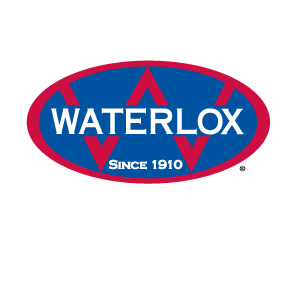Tuesday, December 13, 2011
Waterlox Donates Product to Virginia Tech University for its Farmer's Market Community Project
At Virginia Tech University, the School of Architecture + Design’s design/buildLAB is designed to give students a real-world experience by developing and carrying out projects that literally are a part of the community.
Professor Keith Zawistowski, along with his wife Marie, also a professor at Virginia Tech, led the students in 2011 on a magnificent journey of community restoration and invigoration.
According to Zawistowski, the goal of the course is “to teach students the skills necessary to confront the design and realization of architecture projects, with a consciousness for social and environmental issues. By removing the abstraction from the making of architecture, the course engages students’ initiative and encourages them to ask fundamental questions about the nature of practice and the role of the architect.”
The students studied farmers markets all around the areas near their university and found one in Covington that could truly use a rehab.
“The neighboring town to Covington is Clifton Forge and there was an old sawmill converted to tire retreading facility and the local organizations got together with county government to move the facility out to an industrial park,” he said. “Then they bought it out and they wanted to develop it to a park, so our students dismantled the old saw mill and that wood became the ceiling of the farmer’s market.”
In a town where the residents are dominantly employed by one local manufacturer, new buildings and architectural projects are rare, to say the least. But the new farmers market gave the entire community a new 150-foot-wide by 30-foot-wide overhang under which they could gather each week.
“It’s the most prominent building in town and the first new one in town, so it stands out,” he said. “It’s a very agrarian material palate, it’s designed with the materials you’d expect in a barn so it’s great for a farmer’s market because while aesthetic its agrarian look appeals to everything in the area.”
The entire project depended on donations and grants to make it happen. With a budget of $150,000, products and services were both donated. To seal the wood ceiling on the project, Waterlox donated several gallons of Waterlox Original Sealer / Finish to the university.
“The students donated their time to make it happen for the community and it relied very heavily from donations from companies like Waterlox,” he said. “We’re extremely happy with the Waterlox because it will allow the wood to age naturally as it’s already an antique project.
“If you put polyurethane on it then it would’ve had a plastic look but Waterlox allows it to age natural and get more beautiful with age. It reveals the nature color of the wood instead of a high sheen. It lets the wood be wood.”
In addition to the quality of the project being solidified by using Waterlox, Zawistowski says the students involved in the project learned about the corporate citizenship aspect of public projects as well as they were able to use a product that had no learning curve.
“Beyond the quality there’s the idea of Waterlox being a good corporate citizen, which helped make the project happen,” he said. “They just gave it to us and that’s awesome. The other thing about Waterlox is that it’s very easy to use because it’s a self-leveling product. You don’t need to be careful putting it on you can roll it on and go. There’s no special training needed so it was definitely easy for the students to apply.”
Waterlox resin-modified Tung oil-based finishes are different from other types of wood finishes on the market and offer a “best of both worlds” alternative. For example, raw oils penetrate into the wood but will not provide any real protection to the substrate and will need to be recoated often due to oxidation.
Surface finishes such as urethanes (either water or oil-based) will lie on top of the surface, look more like plastic, can be brittle and once breached will fail. The reason we are the best of both worlds is because Waterlox’s resin-modified Tung oil formation penetrates like raw oil, but protects and nurtures the wood without being brittle and having the plastic look of surface finishes.
Waterlox finishes penetrate into the pores of the wood and build up to a film that protects and nurtures the wood; and on top of all that are easier to restore and re-coat.
For more information about Waterlox, please visit www.waterlox.com or call (800) 321.0377. To visit Waterlox on Facebook, click HERE, or you can follow Waterlox on Twitter at @tungoilfinishes.
PHOTO: © Jeff Goldberg / ESTO
Media Contact:
Ed DeMask / DeMask Marketing
630-768-1404, cell
630-389-0572, office
ed@demaskmarketing.com
Subscribe to:
Comments (Atom)
.gif)
